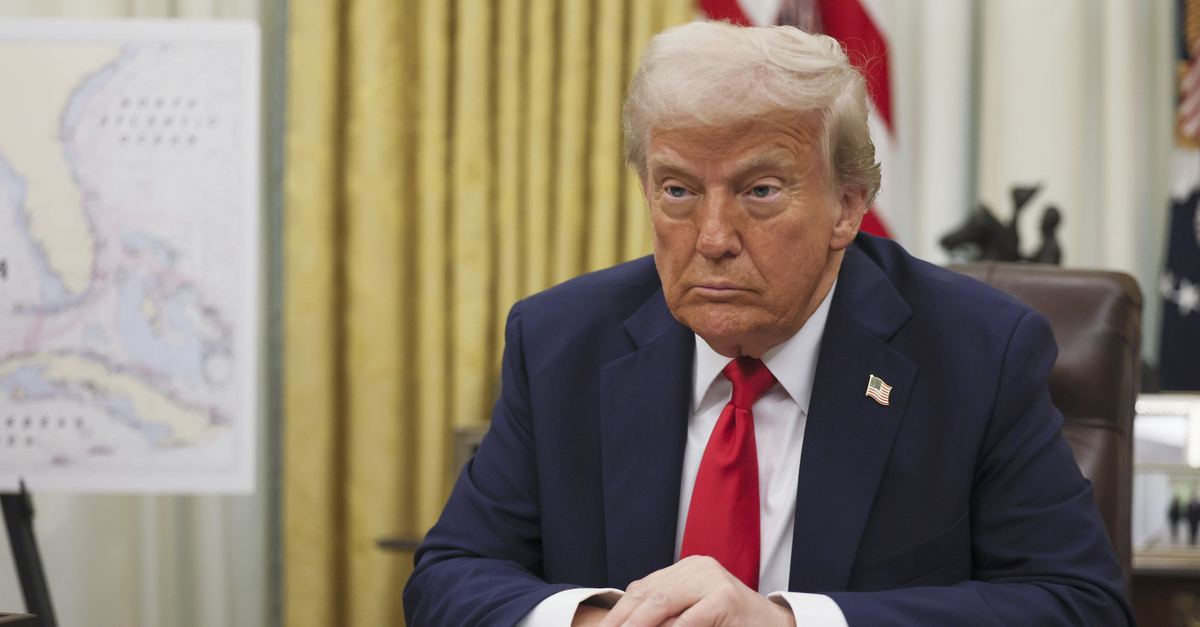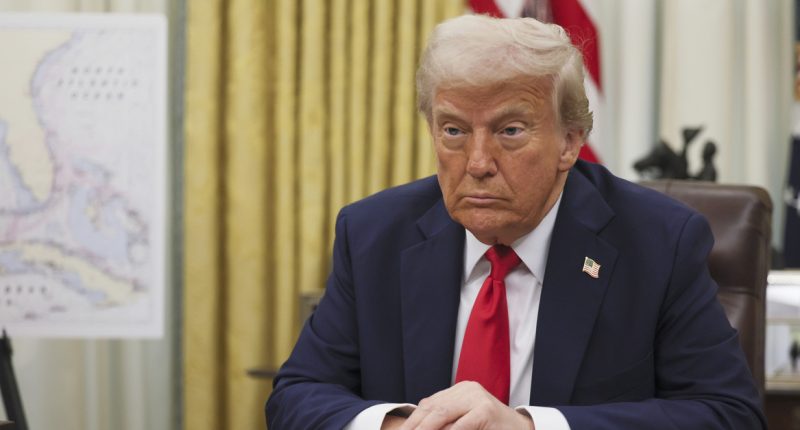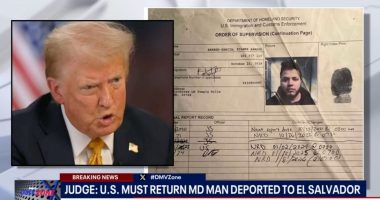Share this @internewscast.com

President Donald Trump listens to a reporter’s question before signing an executive order in the Oval Office at the White House in Washington, on Monday, March 31, 2025 (Pool via AP).
On Friday, a federal judge declined to halt his own ruling that permits The Associated Press to rejoin the White House press pool, marking the Trump administration’s second defeat in this legal matter within the week.
In a brief 5-page memorandum order, U.S. District Judge Trevor McFadden, who was appointed during Trump’s first term, denied a motion to suspend the injunction while an appeal is underway.
But there is time yet for the appellate court to grant a stay of its own. The Department of Justice filed for such relief on April 10 — two days after the lower court entered its order in the AP’s favor. McFadden took note of the leeway granted in his Friday ruling.
“The Court has already stayed its injunction, on its own motion, until April 13, 2025, to allow the Government time to appeal,” McFadden wrote. “The Court will not extend that stay further.”
The day before filing their appeal to the D.C. Circuit Court of Appeals, the government filed a motion with McFadden, pleading for the stay to last as long as the appeals process itself.
In the lower court motion, the DOJ complained that McFadden’s order purports “to control access to the President’s most intimate spaces: his personal workspace (the Oval Office), his means of transportation (Air Force One), and his personal home (the Mar-a-Lago Club).”
The district judge was not taken by this argument.
“Most importantly, the Government has not shown it is likely to succeed on the merits,” the judge observes. “The Government sidesteps traditional forum analysis by invoking an ‘intimate spaces’ exception to the First Amendment. But this label is untethered from precedent, which is likely why the Government did not advance this notion at all in its merits arguments for the injunction briefing. To the contrary, the D.C. Circuit suggests that government offices fit squarely into the definition of nonpublic fora.”
McFadden writes that the government’s motion “misconstrues the facts” and briefly analyzes each of the three claimed “intimate” spaces one-by-one. In sum, the judge noted that the Oval Office, Air Force One, and even Mar-a-Lago are often beset by reporters and other members of the public.
“The President has other personal workspaces to which Defendants do not routinely invite a gaggle of reporters,” McFadden muses. “Those are truly ‘intimate spaces,’ and they are so precisely because Defendants do not regularly invite in prying reporters and the like.”
In his order enjoining the ban, McFadden said the Trump administration is not permanently barred from stripping the AP’s access to certain places, so long as all journalists are banned as well.
“The Court simply holds that under the First Amendment, if the Government opens its doors to some journalists — be it to the Oval Office, the East Room, or elsewhere — it cannot then shut those doors to other journalists because of their viewpoints,” the order reads. “The Constitution requires no less.”
On Friday, the judge also chastised the government over the First Amendment retaliation claim that formed an entirely separate basis for the order in the media organization’s favor. This section is considerably short, however, because the DOJ itself ignored that part of the injunction in their motion for a stay.
Where the government did bother to argue was unavailing.
The DOJ complained that “profound separation of powers issues” implicate the executive branch’s “right to dictate who is permitted” where.
The judge noted this was a brand new argument — and one asserting too much power in light of the First Amendment issues at stake.
“[I]nvoking a vague separation-of-powers argument for the first time in a motion to stay does not help the Government’s case,” the order continues. “It cites no precedent that would allow this Court to overcome the clear commands of First Amendment precedent in the interest of a greater separation-of-powers concern. Constitutional protections would be worth little indeed if they wilt in the face of presidential incursion.”
Love true crime? Sign up for our newsletter, The Law&Crime Docket, to get the latest real-life crime stories delivered right to your inbox.
Meanwhile, the appeal itself is moving forward with speed; the court ordered both parties to brief addressing the government’s motion for a stay pending appeal by Friday afternoon.
















